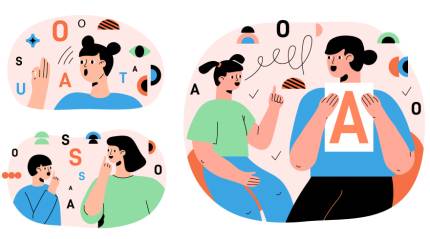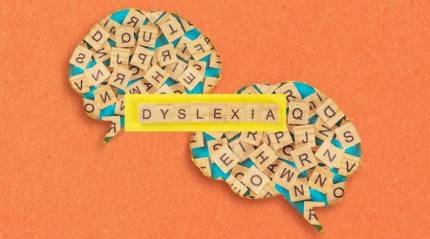How to Test for Dyslexia: A Step-by-Step Guide
- 17 August 2025

Exploring the world of dyslexia can be a daunting journey, especially for adults who have lived with undiagnosed symptoms for years. The landscape of online resources offers a valuable tool in the form of dyslexia self-tests that can aid in self-evaluation. These self-assessment tools can guide whether a person might need to seek further professional evaluation for dyslexia.
Understanding Online Dyslexia Self-Assessment Tests
With advancements in technology, accessing information has become easier than ever. This ease of access extends to health assessments, including the availability of tools like a dyslexia self-test online. These tests provide insight into potential signs and symptoms associated with dyslexia.
These tools are particularly beneficial due to their convenience. If you're grappling with reading difficulties or related challenges, it's possible to take a step forward and test yourself for dyslexia without leaving your home. Engaging in this self-testing process not only allows you to assess your learning patterns but also promotes a deeper understanding of them. The test typically consists of a series of questions devised to evaluate your language processing and comprehension skills. The outcome could serve as an early indicator, suggesting whether further professional assessment might be beneficial.
Benefits of a Self-Assessment for Dyslexia
Taking a self-test for dyslexia can be an empowering step for those questioning their cognitive challenges. The process of dyslexia testing for adults serves as an essential initial checkpoint. By understanding areas pinpointed by this crucial evaluation, individuals can gain valuable insights into their cognitive health and make informed decisions about seeking professional help.
- Saves time and resources by highlighting possible concerns.
- Empowers individuals to be proactive about their learning challenges.
- Provides a non-judgmental environment for self-evaluation.
- Helps prepare a person for discussions with healthcare providers by outlining observed symptoms.
Self-diagnosis based on a self-test for dyslexia in adults can lead to more educational opportunities and personalized learning strategies, helping to alleviate long-standing frustrations.
Table of Common Dyslexia Symptoms in Adults
Adults may exhibit various signs that align with dyslexia. Here's a table that outlines some common symptoms typically assessed in these tests:
| Symptoms | Description |
|---|---|
| Difficulty with Reading | Challenges in reading fluently or at the expected age level. |
| Spelling Issues | Frequent spelling errors and difficulty remembering how words are spelled. |
| Writing Frustrations | Struggles in organizing thoughts and sentences coherently in writing. |
| Poor Memory | Problems retaining information that has been read or listened to. |
| Language Processing | Taking longer than usual to process spoken or written language. |
How to Self-Diagnose and What to Expect
The step to self-diagnose for dyslexia involves more than just taking a test. It is important to approach this journey with a readiness to seek additional help if necessary. The results of a self-assessment can open the door to professional diagnosis and tailored interventions.
It's advised to take multiple self-tests to gauge consistency in results. After which, reaching out to experts in the field can provide a detailed diagnosis. Many adults find that understanding their learning differences through dyslexia screening test helps in workplace accommodations and personal satisfaction.
Resources for Dyslexia Testing in Adults
For those seeking out a free self-test for dyslexia, numerous reputable sites offer them as a starting point. Comprehensive resources often include recommendations for follow-ups and more in-depth evaluations with specialists.
A dyslexia self-assessment test can lead to valuable interventions such as tutoring or therapy. Organizations specializing in learning disabilities can provide guidance post-assessment, ensuring individuals receive the appropriate resources.
FAQs About Dyslexia Self-Tests Online
- Are online self-tests for dyslexia reliable?
Online self-tests can highlight potential signs of dyslexia, but they are not a substitute for a professional diagnosis. They should be considered an initial screening tool only.
- What should I do if my self-test results suggest dyslexia?
If your results indicate possible dyslexia, it’s best to schedule a comprehensive evaluation with a psychologist or an educational specialist for a confirmed diagnosis.
- Can children also take online dyslexia self-tests?
Most self-tests are designed for adults. For children, an assessment by a teacher, educational professional, or child psychologist ensures accuracy and proper support.
- Is there a cost associated with these self-tests?
Many dyslexia self-tests are available for free online, but it’s important to choose reputable sources that use validated methods.
- How often should I take a dyslexia self-test?
You may take a self-test periodically if your symptoms change. However, consistent results across multiple attempts should be followed up with professional advice.
Embarking on a self-evaluation for dyslexia can be a transformative step. With a combination of online resources and professional guidance, individuals can effectively uncover strategies to alleviate the challenges associated with dyslexia.



